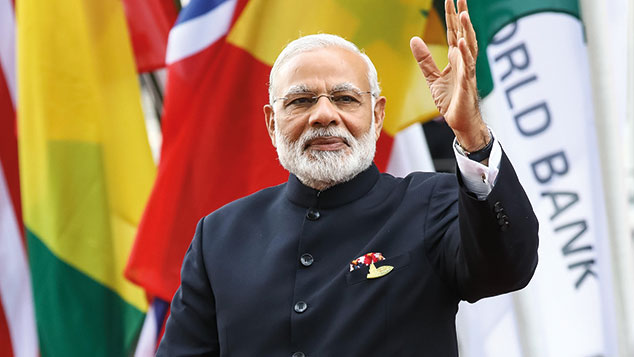
The re-emergence of India and China from their long economic slumber appears to offer investors the prospect of easy profits, but the lesson of history is to tread carefully in these countries. It was only during the late 1970s that China started to reopen its doors and reform its economy, a process that accelerated in the 1990s. India belatedly followed, though the pace has picked up since the election of Narendra Modi as prime minister in 2014. By 2016, India was estimated to have added more to global GDP than China, whose trend rate of growth India has overtaken.
Overall, the return to investors from two decades of Chinese economic growth of above 10% a year was miserable. Chinese overinvestment led to excess manufacturing capacity, as businesses focused on turnover rather than profits, while the banking system became ever shakier. The slowdown in trend growth to a more sustainable 5% implies a greater focus on profits, but many investors worry about poor corporate governance and the heavy hand of a nominally communist government.
The same investors used to bewail India’s stifling bureaucracy and business-unfriendly politics, but are now more optimistic. Long-established family controlled companies with a greater emphasis on cash flow and better corporate governance mean higher-quality investment opportunities than – outside of Hong Kong – is typical in China. Unfortunately, much of this is in the price. “Eighteen times earnings is the new normal for valuations, and a quarter of the top 500 companies trade at over 40 times,” points out Gaurav Narain, manager of the India Capital Growth Fund. But although valuations are excessively high, fund in-flows should continue, as foreign investors aren’t in the market, adds Narain.
So while the MSCI India index has returned more than 20% in the last 12 months, the MSCI China has returned 40% (though both markets have returned nearly 100% over five years). Much of China’s performance reflects the phenomenal success of the IT sector, which now comprises nearly 40% of the Chinese market. Tencent and Alibaba alone account for nearly 30%, benefiting from protectionism that largely keeps the US giants out of the market.
It would be tempting to conclude that the opportunity in both markets has gone, were there not two outstanding investment trusts available at attractive discounts to net asset value (NAV).
Fidelity China Special Situations (LSE: FCSS) has £1.4bn of net assets and trades at a 10.5% discount. The one-year return of 34% is lagging the MSCI China index, but the five-year return of 252% is way ahead. Borrowings of nearly 17% of net assets show that the manager remains upbeat. Over half the fund is invested in companies with a market value of below £2bn, which are not represented in the index. This and the level of debt causes Winterflood Securities to describe FCSS as a high-risk, high-return investment, but an attractive one. India Capital Growth (LSE: IGC), meanwhile, has only £140m of net assets, but trades on a 17.5% discount. It has returned 28% over one year and 154% over five from a portfolio of 36 stocks, mostly small and mid-caps. Portfolio turnover of around 15% points to a commendably long-term focus. There are no borrowings.
Both funds look attractive, despite the risk of market setbacks. Just remember that a favourable attitude towards foreign investors has never been a priority for either country’s governments.
Activist watch
Passive funds giant Vanguard has thrown its weight behind shareholders’ resolutions on climate change and gender diversity, says Chris Flood in the Financial Times. The world’s second-largest asset manager has faced criticism over its role as a “corporate steward” because its preferred approach is to discuss contentious issues in private and to avoid public disputes. This has led to accusations of being too soft on problems such as excessive executive pay and failure to engage with climate-change risk. Vanguard this year voted against climate-risk disclosures by ExxonMobil and Occidental after judging that reports by the two US energy companies were “not up to the standards now required by investors
In the news this week…
• Peter Hargreaves has invested £25m in a start-up fund, “returning to the fray” more than two years after stepping down from Hargreaves Lansdown, the £6.6bn funds supermarket he built with Stephen Lansdown, says Andrew Lynch in The Times. Hargreaves has become a partner in Blue Whale Capital, which is led by stockpicker Stephen Yiu, formerly of Nevsky Capital and Artemis Investment Management. Blue Whale is “expected to look outside the UK for investments”, notes Lynch. “It’s my belief that UK investors have been very insular in their approach. As a consequence of Brexit, Britain needs to look more internationally,” Hargreaves told The Times. Blue Whale will invite the public to invest alongside Hargreaves on equal terms, says Lynch, with annual fees of
1%-1.24%.
• The latest thematic exchange-traded fund (ETF) to launch will invest solely in stocks tied to the Republican party and carry the ticker MAGA, after President Donald Trump’s campaign slogan “Make America Great Again”, says Citywire.co.uk. Formerly called the Point Bridge GOP Stock Tracker ETF, the US-listed fund will buy companies that have employees or activities that are “highly linked to Republican candidates for election to senior positions”. Annual charges for the fund will be $72 a year for every $10,000 under management (0.72%).